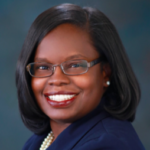In its 2022 session, the North Carolina General Assembly could have addressed criminal justice reform, gun control, economic relief, or other pressing issues. Instead, they spent their time (and our tax dollars) passing a bill that will hurt LGBTQIA+ students and families. This new law raises several serious questions for teachers, administrators, parents, and students.
We’re talking about North Carolina’s version of the “Don’t Say Gay” bill.
What does the bill say?
The bill — officially titled the “Parents’ Bill of Rights” — has several troubling provisions. Most significantly, it states:
“Instruction on sexual orientation or gender identity shall not be included in the curriculum provided in grades kindergarten through third grade, regardless of whether the information is provided by school personnel or third parties. For the purposes of this section, curriculum includes the standard course of study and support materials, locally developed curriculum, supplemental instruction, and textbooks and other supplementary materials.”
Translation: The bill would remove all mention of gender and sexuality from North Carolina’s K-3 public curriculum. Thus, it is fair to call it North Carolina’s “Don’t Say Gay” bill.
Does the K-3 curriculum really need to include these things?
Yes.
The latest data show that roughly 63,000 LGBTQIA+ teens live in North Carolina, and thousands of North Carolina families are headed by LGBTQIA+ parents. While reliable statistics are hard to come by, experts estimate that one in ten teachers identifies as LGBTQIA+. So, it is highly likely that many of the children this bill wants to “protect” have LGBTQIA+ parents, teachers, or siblings. The North Carolina “Don’t Say Gay” bill would prevent schools and districts from developing a curriculum that addresses this reality.
 Ignoring this reality is no small matter. The American Psychological Association has noted that the failure to address these issues in young children can increase both social isolation and stigma, which can eventually lead to depression, anxiety, self-harm, and even suicide. Statistically, studies report that compared to cisgender, heterosexual kids, LGBTQIA+ youth are three times more likely to consider suicide, five times more likely to attempt suicide, and twice as likely to engage in self-harm.
Ignoring this reality is no small matter. The American Psychological Association has noted that the failure to address these issues in young children can increase both social isolation and stigma, which can eventually lead to depression, anxiety, self-harm, and even suicide. Statistically, studies report that compared to cisgender, heterosexual kids, LGBTQIA+ youth are three times more likely to consider suicide, five times more likely to attempt suicide, and twice as likely to engage in self-harm.
But these sad outcomes can be avoided. Experts note that positive, protective school environments that limit bullying and encourage acceptance help LGBTQIA+ students thrive. This holds true even in elementary schools.
Darliz Fonseca, a mental health specialist with LILA LGBTQI INC., said, “When these little ones identify with a sex other than that assigned at birth, opening spaces for awareness, growth, support, and education that enrich and strengthen the generation of an inclusive culture is important.”
Does the bill only address the K-3 curriculum?
While the restrictions on the K-3 curriculum are bad enough, the bill goes beyond not talking about gender or sexual orientation. It also:
- Allows parents to review their children’s library records
- Requires schools to notify parents if a child wishes to change their name or pronouns
- Prevents schools from adopting rules that prevent staff from notifying parents about a student’s “mental, emotional, or physical health”
These changes would give parents access to information that could “out” a student to their family. The bill could also give LGBTQIA+ teens fewer reasons to trust their teachers and more reasons to be suspicious of adults in a position to support their well-being.
Who voted for this bill?
North Carolina’s Don’t Say Gay bill was first introduced by Rep. Hugh Blackwell — a Republican from Burke county — in April 2021. The bill eventually gained 11 additional GOP sponsors. It passed roughly along party lines. (One Republican, Raleigh’s Matthew Winslow, voted no.) In a roll call vote, the Senate took up the bill and approved it largely along party lines.
Will this bill become law?
It’s highly unlikely. Fans of “Schoolhouse Rock” know that even if a bill is passed by the GA, it can’t become law without the governor’s signature. Governor Roy Cooper has made it clear he is no fan of this bill. He told WCNC Charlotte:
“Schools are grateful for involved parents and we need even more of them working together with teachers to educate our children. However, the last thing our state needs is another Republican political ploy like the bathroom bill which hurt our people and cost us jobs, so let’s keep the ‘Don’t Say Gay’ culture wars out of North Carolina classrooms.”
Cooper’s words — along with the fact that the GOP majority lacks the numbers needed to override a veto — prompted House Speaker Tim Moore to tell WRAL that there would be no further action on the bill this session. Moore said, “We don’t see a pathway, necessarily, to it becoming law.” However, Moore did leave the door open to presenting the bill to Governor Cooper later this year.
But for now, the bill is just a bill — not North Carolina law.
If the bill’s not going to become law, what’s the harm?
While North Carolina likely won’t adopt the “Don’t Say Gay” bill anytime soon, the mere existence of the bill is harmful.
Matt Martin, Grassroots Advocacy Manager at North Carolina AIDS Action Network, stated, “At its core, this type of legislation sends a message to LGBTQ+ youth that they are wrong and broken for being who they are. It also sends the message to non-LGBTQ+ youth (and adults), that the rights and dignity of queer folks don’t matter. Even if it won’t become law, this type of messaging is extremely harmful, further marginalizes queer folks, and leads to additional bills targeting queer youth.”
What happens next?
Martin provided some helpful advice: “Call your representatives and tell them how harmful this type of legislation is. If you are a parent, have conversations with your local school board and administration about ways that they can protect and support LGBTQ+ youth, families, and staff/teachers.”
And don’t forget: We can vote. This November, all 170 members of the General Assembly are up for reelection. Speaker Moore also told WRAL that if the “Don’t Say Gay” bill isn’t presented to Governor Cooper this year, he wants to try again next year when he hopes that the GOP will have a veto-proof supermajority. Whether he gets his wish is up to us.
Women AdvaNCe compiled a list of Pride Month events happening this June! You can check it out here.
 Nareissa Smith is a lawyer, writer, and freelance journalist based in Durham. She is passionate about justice for all historically oppressed and marginalized groups. You can follow her at @NareissasNotes on Twitter and Facebook.
Nareissa Smith is a lawyer, writer, and freelance journalist based in Durham. She is passionate about justice for all historically oppressed and marginalized groups. You can follow her at @NareissasNotes on Twitter and Facebook.

There are no comments
Add yours